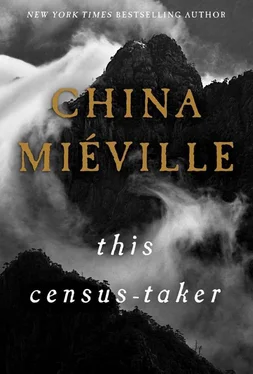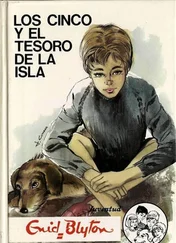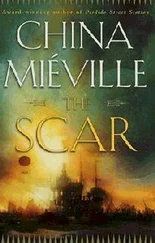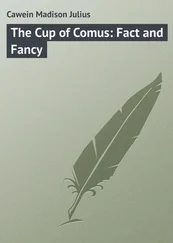—
There were three other full-time and uniformed officers using the schoolroom as their temporary headquarters. They muttered to each other, they seemed edgy. They all but ignored me, except for the big policeman: he beat me. His attack was offhand and calm. He explained with passionless ill-temper that this was what I got for disobeying the law that made clear I was my father’s.
This was the first time any adult had hit me.
The window-cleaner winced with every strike. I felt better and worse that even a man such as he counted this punishment unfair. He did not intervene.
When he was done, the policeman made me wait while he discussed paperwork and plans with his colleagues. I hoped the hunter would come. I imagined him pushing through the thickets in the foothills. I’ve thought of him like that often since, as if he’s still out there, game in his sights, intending to check on me on his return.
It was early afternoon when they got word to my father and he came to fetch me.
I was sitting red-eyed and fearful when I heard a noise and looked up and he was standing in the schoolroom’s doorway, flanked by part-timers in their sashes, a man and a woman I didn’t recognize, and two of the visitors in full uniform. My father carried bread. His expression was solicitous.
He said, “Boy.” He stepped forward and stopped when he saw my face.
My father turned and screamed at the officers, “ Which of you did this?” in a voice much louder than any I’d heard him use before. He slung the bread away and it bounced into a corner where I eyed it. “I’ll kill you if you touch my boy ever again,” my father shouted. “I will kill you.”
The officers blinked at each other in shock.
“It’s those bridge rats he runs with,” the window-cleaner said. “They been scrapping. We ain’t touched him.”
“Calm down, mate,” said the officer who’d beaten me. “Take your damn boy home.”
My father bared his teeth at them. I saw him compose his face and turn to me as calm as he could make it. “They lost me your breakfast,” he said. He smiled at me. “I’ll get more.
“Come on,” he said. He held out his hand. “Time to go.”
—
The shutters were up, the shops open, the roads full. Men and women swept away dust. My father pulled me out into the last few hours of that day — the square was crowded — and I saw Drobe and Samma and the others. They stood by a wall in my line of sight as if they might be there by chance. My father saw them too, and without expression gestured at them to keep away.
He held your hand tight while you stared at them. He rushed you across the square, disturbing greedy birds.
People watched him. He went to a bread-maker’s and called for a loaf but the woman shook her head. “No bread,” she said, and turned from him. There was plenty visible through the flecked window.
My father approached a man frying skewers on a big metal plate but he too shook his head at our approach and sort of reached his arm around his food as if it were a child that he was protecting.
Every vendor refused my father’s custom. They gathered, they watched us with implacable faces, no warmer to me than to him. I don’t know if he did, but even with my face still hurting from the policeman’s blow I felt stung by the indignity of their shunning. I suppose it meant they believed me, but I felt shame.
Samma and her gangmates watched me and I them. They shadowed us as one at a time the shopkeepers refused my father, and all their customers folded their arms and went silent until he took me away.
What about me? I thought. Can you take me? Please, let me stay. But the law had said I was his and they had a lot of respect and fear for the law in that town.
My father didn’t stare anyone down but nor did he wither under their disapproval.
He judged the sky. “You’ll have something at the house,” he said. “We have food there. Good long walk and we’ll build an appetite.”
As my father led me from the square toward the edge of town, Drobe motioned to me. He looked strained and he kept staring up and out beyond the town with an immense, furious eagerness, but he made sure to catch my eye, and indicated, as he had before, for me to wait. He looked hunted.
—
In the foothills, we rounded the last turn and passed out of sight of the main street. I kept turning to glance, to see a last glimmer of the bridge over the gulch with early anglers lined up on the railings ready for the first bats, washing flapping from high windows like flags. My father knelt before me.
“That’s enough,” he said.
He shook my hand gently and made me look up at him while my feet picked over stones and the air went thin. “That’s enough. These’ve been bad days I know and I know you’ve been scared and you haven’t known what’s happened or what to do. I don’t blame you. I understand. But this stops now. No more running away. No more hiding in the town. Or anywhere. No more. All right? You understand me?”
He shook my hand again until I answered yes.
“Good. There’s just the two of us now, we need each other,” he said. “We need to look out for each other, don’t we? So. We’ll learn. No more running away. Good. If you ran away again I’d have to come and find you and I’d be upset and angry.
“Now, you, come and eat. Those bastards in town…”
He checked himself. As if I hadn’t learned from the gang any word he might use. As if I hadn’t known them before that, from books my mother had me read.
And I did not run away again, though I thought of doing so many times, and made one more half-attempt.
Again I took to the topmost room.
As soon as my father left me alone, and too fast to reconsider, I took a candle and crept back up into that attic for the first time in months. And though I was quivering as I climbed, when I entered, even despite the dark, I felt no fear, no shock. Only a hollowness.
What the hunter had said was true: the blood was wiped away. So were my own drawings, which I’d thought secret.
The room would shake in the strongest winds, and I’d look many times across the night and the ruckusing air of the uplands and imagine being out in that, heading away from the hills, but I always stayed. I can’t say I chose to stay as I felt quite without traction, without capacity to find myself or anything. A gusted thistle! That’s what I thought I was like, for weeks. Thinking my own past self is mostly a mystery story.
My father continued to make his keys. For himself, I supposed.
During the daylight, I wandered. More than once, from far off, from somewhere in the steepening zone between the town and my part of the uphill, I heard that chattering call. I heard the complaints of animals carrying loads. Once more I heard the boom-snap of those two distinct and distinctive shots.
—
I can’t tell you what my father wanted from me; it may be that all he wanted was me. He loved me, but he had loved my mother too, and that love didn’t preclude me watching him and waiting for any shift to come over his face. It didn’t stop me wondering.
I can’t tell you what he wanted from me because he asked so little. Now that I was back, my father was content for me to kick my stones through the fence and over the edge again. To explore up and down, to watch fighting chuckwings and rock rats hunting for worms.
I took a last few of my mother’s papers up to the windy top room where I read them several times, or tried to — some were beyond me. Instructions for wall building; an allegory about selfishness set among animals; a description of a carved box that was supposed to contain a person’s soul, kept in a museum, in a city of which I’d not heard.
Читать дальше












